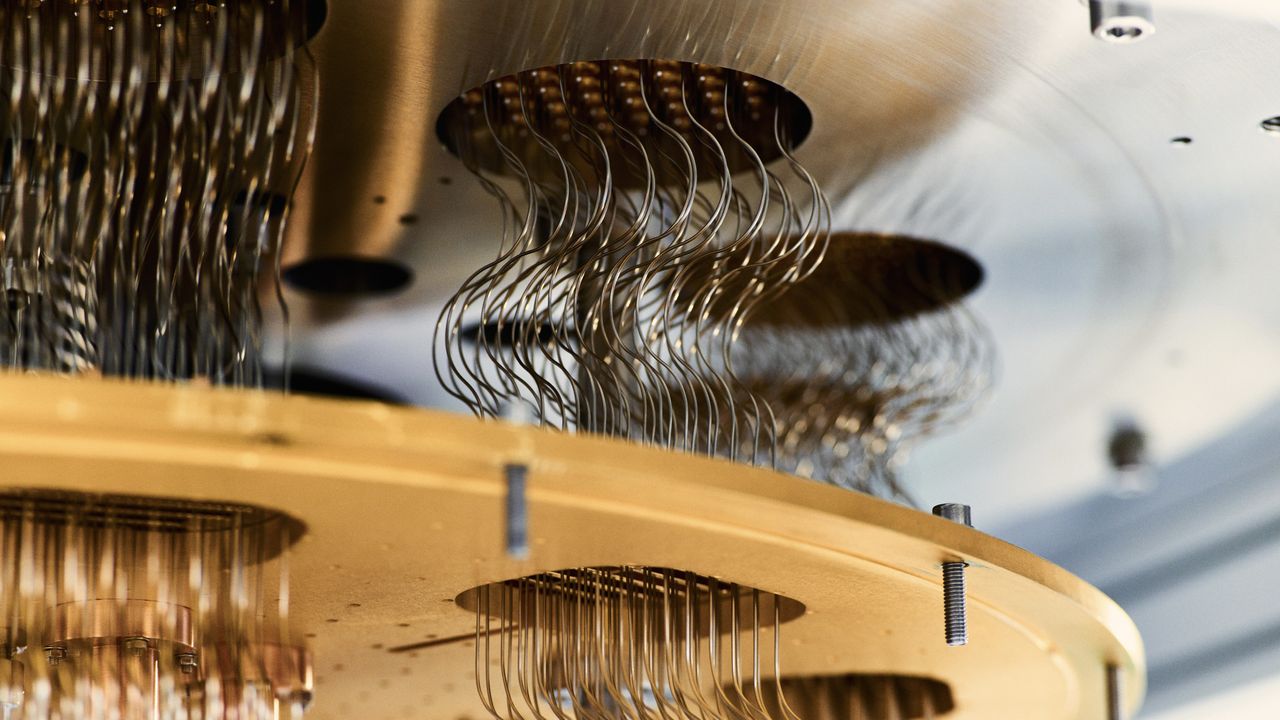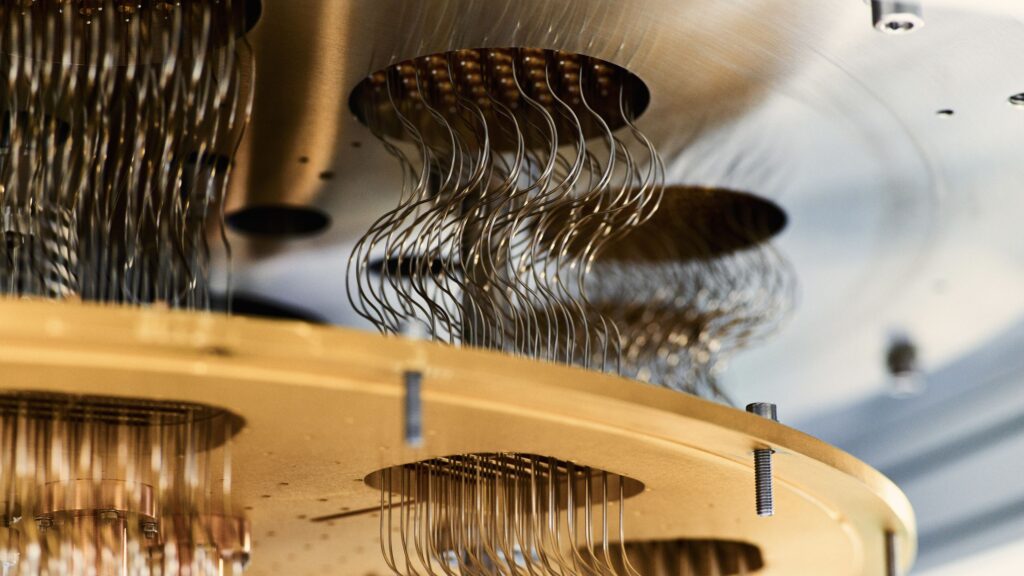
Google scientists have created a new algorithm that can solve problems on a quantum processor 13,000 times faster than the world’s fastest supercomputers. They say it brings us one step closer to using quantum computers in drug discovery, materials science and many other scientific applications.
The researchers say the new algorithm, dubbed Quantum Echoes, is a breakthrough because it achieves quantum advantage while being the first such algorithm that can be verified independently by running it on another quantum computer.
In doing so, they discovered previously unknown details of the atomic spacing and structures of two molecules with 15 and 28 atoms respectively — [4-13C]-toluene and [1-13C]-3′,5′-dimethylbiphenyl (DMBP).
The system used in this experiment was small (15 qubits), but future work will enable researchers to simulate molecules that are four times larger — a scale that’s impossible for classical simulations, the team said in the study.
Echoes from the past
The new research has built on decades of work that began in the 1980s with research by Michel Devoret, professor of physics at the University of California and Google Quantum AI’s chief scientist of quantum hardware. Devoret was the joint winner of the 2025 Nobel Prize in physics for the work and is a co-author of the study.
“Today, we are announcing this breakthrough algorithm that actually marks another milestone in which the computation is done, the quantity of which is verifiable. So if another quantum computer would do the same calculation, the result would be the same. So this marks a new step towards full-scale quantum computations,” Devoret said in a press briefing. “This Quantum Echoes algorithm is not only verifiable, so that its result can be obtained by another similar quantum computer, but it presents a quantum advantage; it realizes a computation that would take much longer than with classical hardware.”
The Quantum Echoes algorithm works in several stages, amounting to a highly advanced echo in which a signal is sent into the quantum system and then reversed to listen for the “echo” that comes back, all amplified by constructive interference (a phenomenon in which quantum waves compound to become stronger).
First, scientists ran a series of operations, or quantum gates, on an entangled 105-qubit array on the Willow QPU. Next, one qubit was perturbed, or deviated, before they ran the same exact operations in reverse. The result was a curious “butterfly effect” that could be used to reveal information about the quantum system. The scientists then used this algorithm to measure distances between atoms in the two molecules.
To confirm the performance of the algorithm on Willow versus on classical supercomputers, the scientists conducted rigorous “red-teaming” tests, borrowing from cybersecurity methods to verify the robustness of the results. These tests ran for the equivalent of 10 years.
“Certainly, it throws down the gauntlet for any skeptics to try to reproduce their results classically,” Scott Aaronson, chair of computer science at The University of Texas at Austin told Live Science. “Compared to previous quantum supremacy demonstrations, the big advantage here is that the output is a single number rather than a sample from a distribution, and therefore is in principle, efficiently verifiable — if not using a classical computer, then at least using a second quantum computer.”
Aaronson added that verifiable quantum supremacy is one of the biggest challenges in the field. He noted that Google’s goal across both new studies was not to solve a commercially useful problem but to get a clear advantage over a classical computer and enable another quantum computer to verify the answer independently.
Google launched the Willow quantum computing chip in December last year. The new processor demonstrated that as the number of qubits are scaled up, the errors that occur reduce exponentially, marking a key milestone in quantum computing research. But hardware improvements are not enough on their own — even if the machines could be scaled the millions of qubits required to beat classical computing. That’s because the software and hardware components need to work together to find the most efficient route to solving a problem, as Mi noted.
Google scientists claim that we will begin to see practical applications that are only possible with quantum computers in as little as five years. However, we would still need to scale up the hardware so that machines can operate with millions of qubits — something which is difficult to imagine today because the most powerful quantum computers only have 100s or 1,000s of qubits.
